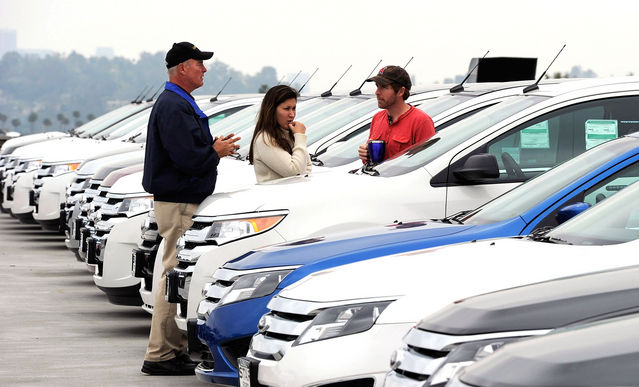Used Car Purchasing Tips: Buying a used car can seem overwhelming; with so many things to consider.
Where do you even start? We’ll show you how to find a used car that not only fits you perfectly.
But one that you’ll feel safe behind the wheel in.
Try not to become a man of success. Rather become a man of value. You can request publication of your article for publication by sending it to us via our Email below. Click here to start business now with businesshab.com
Read on: 5 Top Debt Relief Companies

See also: 13 Top COVID-19 Loans Reach-out
Here are the steps to take when buying a used car:
- Decide what type of vehicle you want
- Start searching
- Find out what the vehicle is worth
- Take a test drive
- Get a pre-purchase inspection
- Get a VIN Check
- Get the history
- Questions you should ask
- Negotiate the price
- Get car insurance
- Finalize the sale
Keep reading below for a more detailed look into each step in the used car buying process.
1. What’s the right used car for you?
Deciding which vehicle you should buy will depend on your needs, your budget and personal preferences.
Consider which features are necessities, and which are luxuries.
Evaluate a car’s make/model, price, fuel economy, safety rating, size, driving experience and resale value.
See also: 6 Tips to Grow Your Emergency Fund
Used Car Purchasing Tips
2. Where to look for a pre-owned vehicle
To find a used car near you check out resources like online listings, consumer reports, your local newspaper’s classified section, print buying guides and public auctions. Don’t forget to visit your local dealership to check out their inventory, as they constantly get new stock.
Find out where to shop for a used car.
3. What’s the car worth?
Not sure if the car you’re interested in is priced fairly? Though there are many factors that can influence the value of a car – accident history, maintenance, weather damage – using the CARFAX Canada Value Range tool can help you find the average selling price of similar vehicles in your area, giving you an idea of where to start.
4. How do you perform a proper test drive?
A 30-minute test drive is essential to evaluate how a car runs in a realistic setting. Plan a familiar route and test actions you would typically do; hit the brakes, put it in park, take a corner, accelerate, merge and change lanes. Get a feel for the car’s accessories and ensure they work.
5. Why is a pre-purchase inspection so important?
A pre-purchase inspection is essential to determine the cosmetic, mechanical and safety condition of a car. A mechanic can help pinpoint any existing conditions as well as highlight potential future issues. This information is critical and can help provide negotiation leverage.
Where to get a pre-purchase inspection.
6. What is a VIN check and how do I get one?
A VIN check will tell you details about a specific car like year, make, model, and where it was made. When buying a used car, this information is important in order to make a decision with confidence. To decode a VIN, first find the VIN, typically found on the inside of the driver’s door jamb and windshield, and enter it into a free decoder tool, like this one below.
Read on:5 Best Financial Help Agencies for Widows
7.How do you find out the history of a car?
A CARFAX Canada Vehicle History Report provides you with important information that’s critical to understand when buying a used car. Most importantly, it uncovers whether the vehicle you’re interested in has been in an accident and if there’s a lien registered against the vehicle.
Used Car Purchasing Tips
8. What to ask before buying your next car
Take the intimidation factor out of buying a used car by asking the right questions. Ask why they are selling the car, if it’s had regular service and maintenance and if it’s still under warranty. Ask for a VIN check and request to take the car for an independent inspection.
10 questions to ask before buying a used car.
9. How to successfully negotiate a used vehicle purchase
Before you negotiate, make sure you know the vehicle’s Value Range, and educate yourself on the other factors that impact a vehicle’s value. This will help you make a confident offer based on your research and budget. Keep your emotions in check and be prepared to walk away – a successful agreement will benefit both parties.
Top used car buying negotiation tips
Used Car Purchasing Tips
10. How to get the right car insurance
Upgrading your used car is a great time to reassess your insurance needs and make sure you’re getting the right coverage. You’ll need to update your insurance before finalizing the sale, so shop around and see what’s out there in terms of prices what your premiums will cover. There are lots of great discount programs out there too – you can get more information from our friends at businesshab.
11. How do you finalize a used car sale?
Each province has different regulations for finalizing the sale of a used car. We’ve compiled the steps and information that you need to know, as well as provided links to the appropriate websites. When in doubt, contact your provincial government to ensure you and the seller have covered your bases.